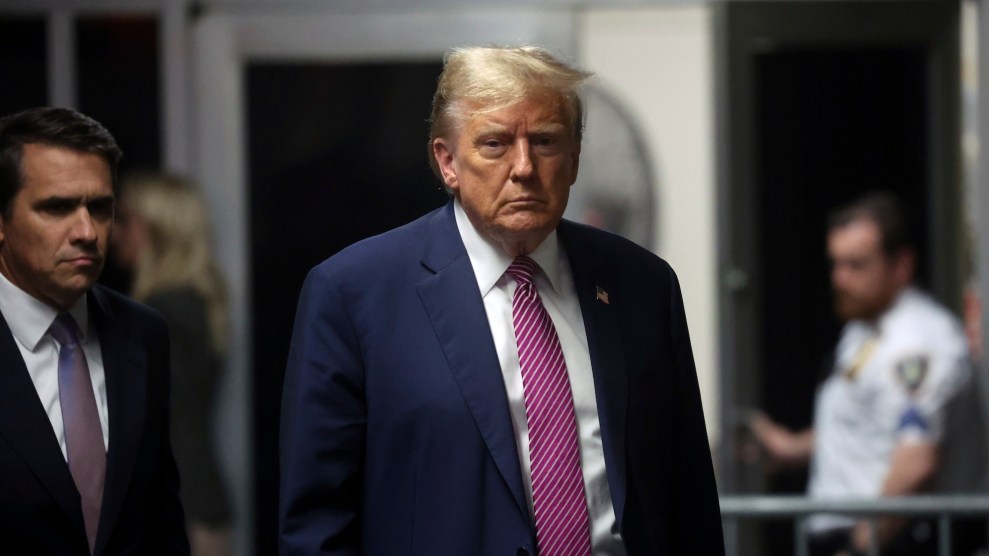Noam Scheiber brings us up to speed on the state of play of derivatives regulation in the Senate finance reform bill. Big banks, it seems, are actually feeling a little fear these days:
The reason the recent developments are so remarkable is that all reforms tend to weaken as they get closer to passage, as legislators hash out compromises with powerful interests in order to secure a deal. Bizarrely, financial reform appears to be headed in the opposite direction. When it comes to derivatives, at least, the bill Senator Chris Dodd moved through his Banking
Committee in March was significantly tougher than the bill the House passed in December. Then, last week, Lincoln shocked Wall Street by producing an even tougher bill than that.
….What happened? For weeks, Wall Street had viewed the Dodd language as a placeholder while Lincoln and [Saxby] Chambliss hashed out the real details. Instead, the practical effect of the Dodd language was to create a minimum standard of toughness from which Democrats would be unwilling to retreat. As Lincoln and Chambliss bargained in March, the administration began to focus on the issue and discovered its popular resonance….By the time Lincoln finally sent the administration the contours of a possible deal with Chambliss the week of March 29th, there was no way the deal could pass muster. Several days later, Michael Barr, the assistant Treasury secretary with the derivatives portfolio, told Lincoln’s staff the administration would be unable to support it because it weakened the Dodd bill.
This really does seem to be the one ray of sunshine on the regulatory front right now. I’m only lukewarm toward the rest of the Dodd bill (and its House counterpart), but the soap opera over OTC derivatives regulation really has been moving in the right direction lately. And despite the best efforts of the Chamber of Commerce to pretend that regulating derivatives will hurt ordinary businesses, nobody is buying it. Derivatives may not have been the primal cause of 2008’s financial meltdown, but there’s no question that (a) they helped things along and (b) the social value of complex credit derivatives is pretty close to zero. It really is just the pure shuffling around of money for the sake of generating huge fees for the five big players in the market.
That makes this a pretty easy win for Democrats if they’re willing to seize it. Serious derivatives regulation is good policy since Lincoln’s proposal would improve the stability of financial markets. It’s good electoral politics since there’s no public constituency in favor of weak regulation — especially since media coverage of derivatives has actually been fairly widespread and uniformly negative. And finally, it’s good partisan politics since it exposes natural fault lines in the Republican Party. “The one tactical question Democrats do agree on,” says Scheiber, “is that the GOP is ready to crumple.”
Blanche Lincoln’s derivatives language is actually so tough that at first I didn’t take it seriously. I figured it was just for show (she’s facing a primary challenge from the left and needs some anti-Wall Street cred) and would get negotiated away pretty quickly. But regardless of whether that was her intent, these things sometimes gain a momentum of their own. Right now, it looks like serious derivatives regulation might have a legitimate shot at becoming law.

















